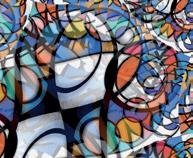HindawiPublishingCorporation
ISRNEducation
Volume2013,ArticleID108705, 8 pages http://dx.doi.org/10.1155/2013/108705
ReviewArticle
Neoliberalism,theKnowledgeEconomy,and theLearner:ChallengingtheInevitabilityoftheCommodified SelfasanOutcomeofEducation
FionaPatrickSchoolofEducation,UniversityofGlasgow,St.Andrew’sBuilding,11EldonStreet,GlasgowG36NH,UK
CorrespondenceshouldbeaddressedtoFionaPatrick;fiona.patrick@glasgow.ac.uk
Received28February2013;Accepted4April2013
AcademicEditors:T.A.Betts,T.Carvalho,andR.Pasnak
Copyright©2013FionaPatrick.ThisisanopenaccessarticledistributedundertheCreativeCommonsAttributionLicense,which permitsunrestricteduse,distribution,andreproductioninanymedium,providedtheoriginalworkisproperlycited.
Neoliberalismisnowaglobalisedagendathatunderpinseducationalstrategyandpolicyinmanynations.Theevolutionofthe conceptoftheknowledgeeconomyandoftheknowledgeworkerhas beenalliedtotheriseofneoliberalismasanendwithrespect toeducationalprocesses.Thisreviewarticleconsidersthewaysinwhichconstructsoftheknowledgeeconomywithinaneoliberal agendahavegivenrisetospecificdiscoursesandconceptualisationsofeducationaloutcomesandaims.Inparticular,thevalueof knowledgeandlearningwithinneoliberalconstructionsofeducationwillbediscussed.Thepositioningwithintheseconstructions ofthelearnerasareificationofeconomiccapitalwillalsobeexplored.Thispaperarguesforareconsiderationofthepurposesof educationifthecommodifiedselfistoberesisted.
1.Introduction
Thereisaconsiderablebodyofliteraturewhichexploresthe effectsofneoliberalismoneducationpolicyandpractice[1–5].Despitethisbodyofcritique,neoliberalismhasmoved beyondahegemonicsetofdiscoursesandpracticestoachieve thestatusofadoxa,thatis,“anunquestionableorthodoxy thatoperatesasifitweretheobjectivetruth”[6,page 419].Inaddition,neoliberalismcanbecoupledwithanother setofdiscourses:thoseofglobalisationandtheknowledge economy.Takentogether,thesethreeideologicalconstructs exertconsiderableshapingforceoneducationsystemsin manydevelopedanddevelopingcountriestothepointwhere itcanseemfutiletoarguethattheireffectsmaynotconstitute eithereducationaloreconomicgood.
However,itisimportanttocontinuetoraisequestions abouttheinfluenceofneoliberalismoneducationalaims, policies,andprocesses.Withoutthisexplorationthereisa riskthatneoliberalideologieswillremainentrenchedwhile theaimsofeducationareerodedtoasetoffunctionalist outcomes.Toconsidertheseissues,thisreviewarticlewilldiscussthewaysinwhichneoliberalismasaglobalisedideology interactswithconstructsoftheknowledgeeconomytogive
risetospecificconceptualisationsofeducationaloutcomes andaims.Inparticular,thecommodificationofeducation andthecommodificationofthelearneraspotentialknowledgeworkerwillbeofinterest.Despitethedepthofliterature onneoliberalism,thereisaneedtoconsiderfurtherhow neoliberalpolicyshapestheselvesoflearnersandhowthese selvesarepositionedwithintheoverallaimsofeducation. Thisisanimportantaspectofcontemporarydebate,given thecontinuingtendencyforneoliberalpolicytoposition individualsasfutureworkers[7]andtoasserttheprimacy ofeducationasthemeanstothisend.
2.ConductingtheReview
Thevalueofreviewingamaturetopicsuchasneoliberalism anditsinfluenceoneducationliesintheopportunityto reconsideraspectsthatwarrantfullerunderstanding[8].To enablethis,ananalyticliteraturereviewwasconductedto exploreandextendexistingtheory[9]relatingtoneoliberalismandtheknowledgeeconomy.Initially,thereviewwas carriedoutfollowingfourresearchstagestosearch,map, clarify,andappraisetheliterature[10]acrossarangeof peer-reviewedtexts.Aqualitativeanalyticapproach[11]was
thenusedinthecriticalreadingofthetextstoidentifythe conceptualframeworkandthecontentthatwouldformthe basisofthereviewarticle.Thisidentificationwasconducted byuseofaconceptmatrix[12].Conceptsandtheories werecategorisedbyspecificunitsofanalysispertainingto organisational,individual,andpolicydomains.
Oncesaturationofconceptswasreached,asummaryof themainthemesandunderlyingconstructswasmappedin itsfinalversion.Twoglobalthemeswereidentified:firstly, neoliberalism,theknowledgeeconomy,andthecommodificationoflearning,andsecondly,thelearnerassubjectand subjectified.Thetheoreticalframeworkforthediscussion wasthendrawnfromFoucault’sanalysisofsubjectification [13, 14]and,followingfromthis,Bevir’s[15]constructof individualagency.Biesta’s[16]conceptofeducationasa meanstosupportstudents’“comingintopresence”wasalso includedintheanalysis.Itmaybethataclearerfocuson thedevelopmentofintellectualandaffectivecapacitiesthat cansupportchildrento“comeintopresence”andmore fullyrealisetheirpotentialmightenablethedevelopmentof educationalprocessesthatcancounteractthetendencyinthe marketmodeltocommodifylearningandlearners.
3.TheValueofNeoliberalistLearning:Utility, Function,andCommodity
Neoliberalformsofgovernancehaveattainedtransnational hegemonicstatus[17,page395],restingongovernance ofregions,groups,andindividualsthroughspecificpolicy approachessuchasdecentralisation,privatization,andindividualisation[17].Theoriginsofneoliberalismhavebeen welldiscussedinnumerouspapers(see,e.g.,Centenoand Cohen[18],HurshandHenderson[19],andPeters[20])and sowillnotbereprisedhere.Theimportantpointwithrespect tothisdiscussionisthatneoliberalpolicyhasdisplaced liberalismasadominantpoliticalideologywiththeaimof transferringeconomiccontrolfromgovernmentstoprivate markets[18].AsOlssencomments,neoliberalismrefersto“a particulareconomicmodel,which ... pertainstothewaythat practicesofeconomicsanddiscursivepatterningsofknowledgeandlearninginteract”[21,page217].Withinneoliberaldoctrine,themarketbecomesthecentralorganising principleforpolitical,economic,andsocialdecisionmaking [7].
However,asMajornotes,“[c]onfusionandambiguity continuetoplaguetheconceptofneoliberalismdespite itsfrequentuseincharacterizingtransformationsinboth nationalandinternationalpoliticaleconomy”[22,page538]. Furtherconfusionisapparentwhentheconceptisusedto characteriseeducationpolicyandpractice,withtheconstruct ofneoliberalismhavingbeenappropriatedfromadescriptor ofmodesofglobal economic governance[22]tobeappliedto global education governance.Despitethisconfusion,itcan bearguedthatneoliberalismineducationpolicytendsto engenderatechnicalrationalistapproachtoknowledgeand itsvalue[23,page509].Educationhasbeenincorporated intoanagendaofwealthproductionatnationstatelevel viadiscoursesrelatingtotheknowledgeeconomy[24],the
knowledgesociety,and,morerecently,theenterprisesociety [23,page509].
Peters[20]arguesthattheknowledgeeconomyshould notbethoughtofmerelyasaneoliberalnotionbutas havingpowerfuldescriptiveandanalyticforceinitsown right[20,page68].Thetermknowledge(based)economy emergedintheearly1990sbutremainscontested:tospeak oftheknowledgeeconomyasacoherenttheoryorsetof theoriesisinappropriate,althoughdifferenttheoriesdoshare somecoreunderstandings.Forexample,theassumptionthat educationwillbeadriverforeconomicgrowth,development, orimprovedcompetitivenessfornationsunderglobalised marketconditionsisfoundinmanyexplanationsofthe knowledgeeconomy[25].
Peters[25]believesthatwehavenowenteredaphaseof knowledgecapitalism.Thisshifthasalsobeencharacterised ascognitive(bio)capitalism[26]inthattheknowledge economyisbasedonconstructsofimmaterial(intellectual andaffective)labourratherthanphysicallabourasthebasis ofproduction[27].Thekeyaspecttothislatestphaseis anextensionoftheimportanceofintellectualandsymbolic goodsintheeconomy[27].Withinbothneoliberalism andtheideaoftheknowledgeeconomyrestsaconcept ofeachindividualasbeingeconomicallyresponsibleand “economicallyself-interested”[2,page314].PhillipsandIlcan arguethattheonusisnowplacedonindividualsto“become self-regulating andmarket-knowledgeable”[17,page397].
FollowingDrucker’swork,PetersandReveleyarguethat theintellectofeachknowledgeworkerhasbecomethe mostimportantproductiveresource[28,page4].Individuals carrythemodeofproductionwithinthem,andshaping theindividualintellectmustthereforetakeplacethrough educationtowardstheendofdevelopinghumancapitaland economicgrowth[28,page4].Thevalueofknowledgewithin thisparadigminheresinitsutilitytodevelophumancapital [21,page222].Thustheroleofschoolsanduniversitiesin relationtoeducatingtheindividualhaschangedmarkedlyin thelastthirtyyears:theendofeducationcanbeconsidered asthecreationoftheknowledgeworker.
3.1.TheIndividualandtheEndsofNeoliberalEducation. IntheUnitedKingdom,therehasbeenastrongtrendin educationpolicyandpracticetowardstheacceptanceof neoliberaldoctrine.Thishasledtoareconsiderationinwhich educationalaimsaremostvaluableforindividualsandfor theeconomy(see[29, 30]).Neoliberalismalsopresupposes a“transformationintherelationshipbetweeneducationand socialjustice”[31,page28].Givenaccesstoeducation,a coreneoliberalassumptionisthatallcansucceedregardless ofsocioculturalcontexts.Thereisatendencyforneoliberal ideologytoassertthat
Childrenfromwealthybackgroundsnolonger haveanunfairadvantageoverchildrenfrom disadvantagedbackgrounds,becauseoftheinternationalcharacterofthelabourmarket.What holdsbackthechildrenfromdisadvantagedbackgroundsisnotthefactthatthosefromprivileged backgroundsenjoyalltheeducationaladvantages,
buttheirlackofcredentials,knowledgeandskills whichpreventthemfromcompetingintheglobal competitionforhigh-skilled,high-wageemployment.Therefore,a“fair”educationalsystemisno longeronethatattemptstocreatealevelplaying fieldbutonededicatedtoraisingthestandards ofall,andfacilitatinggreateraccesstohigher educationinordertoarmtheworkforcewiththe credentials,knowledgeandskillsthatarevalued inthegloballabourmarket.[31,page28]
Inaddition,thelearnerasfutureknowledgeworker[7] shouldalsotakeresponsibilityfortheirlearningthroughout theireducationalcareerwhileshowinganadaptableapproach tojobseekingandreskillinginanemploymentmarket characterisedbyuncertaintyandcareerinstability.
Thecharacteristicsoftheresponsible,successful,and adaptablelearneraresetoutintheEnglishNationalCurriculum[29].TheNationalCurriculumstatesthat,bytheendof theirschooleducation,childrenshouldbe
(i)successfullearnerswhoenjoylearning,makeprogress andachieve,
(ii)confidentindividualswhoareabletolivesafe,healthy andfulfillinglives,
(iii)responsiblecitizenswhomakeapositivecontribution tosociety[29,nopagenumber].
TheseaimsbearastrongsimilaritytothoseintheScottish CurriculumforExcellence(CfE).CfE’saimsaregrouped underthe“fourcapacities”whichrepresenttheoutcomesof schoolingthatchildrenwillbesuccessfullearners,confident individuals,responsiblecitizens,andeffectivecontributors [30,nopagenumber].PriestleyandHumes[32]statethat thereislittleattemptintheCurriculumforExcellenceto “unpack”theseconceptsortodelveintothe“deeper,underlyingpurposesofeducation.InthevariousCfEdocuments, thereishardlyanymentionofthebigphilosophicaland sociologicalmatterswhich ... areanecessaryprecursorto planningacurriculum”[32,pages353-354].Curriculumfor Excellencepositionsasetofcapacitiesthathavenomore claimastheendofschoolingthananyothersetofdispositionsorskillsbuthaveeverythingtodowithshapingthe individualaseconomicallyresponsibleandentrepreneurial. Knowledgewithinthesecurricularstatementshaslargely beenconceptualisedasskillsfor(knowledgeintensive)work andforlifeintheknowledgeeconomy.
IntermsofhighereducationintheUnitedKingdom,universitiesarenowregardedinneoliberalpolicyasproducersof knowledgeandtheproductsofknowledgethatcanenhance individualandcollectivehumancapitalandsopositively affecteconomicgrowthanddevelopment.Thatuniversities haveanimportantrolewithrespecttothedevelopmentand disseminationofknowledgeisnotanewidea[33].However, theconceptoftheuniversity’srolewithinwhathasbeen calledacademiccapitalism[34]demonstratesachangein recenttimestowardsamorefunctionalandmarketisedview ofthevalueofacademicknowledgeandwork[33,page185]. Withinthisvision,universitiesareregardedasoneofthe
mainagentsofknowledgeproductioninaknowledgesociety. However,emphasistendstobeplacedontheproductionof knowledgethatcanbecommerciallyexploitedratherthanon consideringthewaysinwhichengagementwithknowledge canenhanceindividualdevelopmentwithinsetsofbroadly conceivededucationalaims.
Arguably,theacceptanceofmarketisationandassociated formsofneoliberalgovernancehasledtotheundermining ofuniversitiesas“independentsource[s]ofknowledgeand inquiry”[33,page192].Oneoftheirprimaryfunctionsisnow to
Raisetheirownproductivityinordertosurvive. Theymustpackageknowledge,deliverflexible educationthroughICT,provideadequatetraining for“knowledgeworkers”,andproducemoreof thematlowerunitcost.Whilethisscenario portraysuniversitiesasguidingsocialchange, thereisevidenceofareversetendency:that theyarebecomingsubordinatetocorporate-style managerialismandincome-maximization.[35, page3]
Aresultofthisemphasisisthatuniversitiesarenolonger consideredprimarilyas“culturalspaces”thatcanenable individualstudentsandteacherstoengageincritiqueand discussion[3,page495].Educationtendsnottobeconsideredasapublicorindividualgoodinanymeaningfulsense [3,page494].Itissimplyacommodity,muchlikeanyother, andhighereducation(bothasasectorandasindividual institutions)seemstohavelostanywilltodebateopenly thevaluesandgoalsthatstudentsmightdevelop[36].There islittlesenseofanalternativetotheneoliberalvisionof thepurposesofeducationascreatingthe“economicallyselfinterested”individual[2,page314].
CribbandGewirtzclaimthatuniversitieshavenow become“hollowedout,”lackingany“distinctivesocialrole andnoethical raisond’etre”[37,page3,originalemphasis]. Neoliberalismseemstohave“takenawaythejoyoflearning, thecreativityofteachingandtheformationofstrongpublic intellectuals”[5,page489].Educationalinstitutionshave becomepartofasocialrealitythatis“identifiedwithan economicvaluesystemthatshapesallrealityinitsown image”[23,page502].Withinthisvaluesystem,knowledge becomes“objectified,measurableandtransferable”[23,page 506].Oneeffectofthisisthatcredentialismbecomesinherent inthesystem:themorecredentialspossessedintheshapeof certificatesanddegrees,themoremarketabletheindividual. Theselfaslearnerbecomestiedto“aneconomicempirical base”[23,page517].However,ashighereducationsectors haveexpanded,thevalueofcredentialshasloweredrather thanincreased[31].GraduateoversupplyisnowacharacteristicofthejobmarketintheUnitedKingdomasisthedriving downofgraduatewages[31].
Inaddition,disciplinaryformsofknowledgebecome creditedwithdifferingeconomicandpracticalvalue.The appliedsciencestogetherwithinformationandcommunicationtechnologiesareraisedinstatuswithregardtoassumed economicutilityratherthantheartsandhumanities.Nussbaumarguesthattheartsandhumanitiesbecomefearedby
thosewhoeducateforeconomicgrowth,becauseitis“easier totreatpeopleasobjectstomanipulateifyouhavenever learnedanyotherwaytoseethem”[38,page23].When knowledgeisseenashavingdifferentlevelsofeconomic value,andwhenthateconomicvaluebecomespredominant, thecomplexitiesofdefiningtheheuristic,epistemological, andontologicalvalueofknowledgeasasociallyconstructed phenomenonarelost[39].Thisisseenalltooclearlyin discoursesoftheknowledgeeconomyinwhichtheword knowledgeisused“inanalmostentirelyrhetoricalway;the meaningofknowledgeisatbestimplicitandatworstvirtually emptyofcontent”[40,page193].
Differentialvaluealsoaccruestoindividualsasknowledgeworkers,theirvaluebeinglinkedtotheworldof immateriallabourwithinwhichknowledgeisthevalorized commodity[26].Fumagalliarguesthatwithintheknowledge economy,“[p]roductiveactivityisincreasinglybasedon immaterialelements,thatistosay,onintangible“raw materials,” whichcomedirectlyfromtheutilizationof therelational,sentimental,andcerebralfacultiesofhuman beings”[26,page10].However,thisdoesnotbringtheindividualknowledgeworkerpowerovertheproductsoftheir intelligence,nordoesitbringthemincreasedagencyor autonomyintheirwork[31].
Ofconcern,hereisthewayinwhichneoliberalismand theknowledgeeconomyarepresentedinglobalandnational policyasinevitableaspectsofmoderncapitalisteconomies. Thetrendinneoliberalpolicytorepositiontheindividual withinaframeworkofeconomicutilityandknowledge capitalcanseemirrevocable.However,asTorresargues, neoliberalismhas“utterlyfailedasamodelofeconomic development”[33,page193].Neoliberalrationalityisnow acknowledgedtohavecontributedtothe2008financial crisis[22]throughcreatingconditionsofglobaleconomic governancewhichledtotheemergenceof“devastatingforms offinancialinstability”[22,page537].Yet,asCahill[41] highlights,claimsthatthefinancialcrisismightsignalarevisioningifnotanendtoneoliberalhegemonywereoverstated: neoliberalismremainsintheascendancy.Cahillarguesthat thisisbecauseneoliberalismisembeddedideologicallyand discursivelyatnationalandglobalpolicylevel,atinstitutional level,andatthelevelofsocialclassrelations[41,pages486487].Heconcludesthattheideologicallyembeddednature ofneoliberalism“meansthatagenerationofpolicymakers hasonlyknownneoliberalismasthecommonsenseframe forconductingandevaluatingpolicy”[41,pages486-487].
Therearesignsthat,intermsoflabourrelationsand intermsofsocialmovements,neoliberaleconomicpolicy isbeingchallenged[41].Forexample,resistancehascome fromindividualsintradeunions,fromstudentbodies,and fromgatheringsofcitizensinprotestattheausteritymeasures undertakenbygovernmentsintheUnitedKingdomand Greece[41,page488].AsCahillsays,thesechallengesmay notdismantleneoliberalism,but
[i]nthecurrentcontext,evenjusthalting furtherneoliberalisationwouldbeawelcome development.Itwouldstymiethepractice wherebycapitalandpoliticalelitesforcethecosts
ofthecrisisontolabour.Itwouldalsohaltthe forcingofpeopleintogreaterlevelsofmarket dependencefortheirbasicneedsbymaintaining currentlevelsofdecommodification.[41,page 489]
Cahill[41]concludesthatdecommodificationrequireseconomic,social,andemploymentstrategiesthatwouldenable sociallyprotectiveratherthansociallydestructivepolicyto beenacted.Movingfromneoliberalismtoconsiderother economicalternativesisalaudableaimbut,aspartofthis aim,thereneedstobereconsiderationoftheeffectsof commodificationineducation,particularlyatthelevelofthe individuallearner.
3.2.TheLearnerasCommodifiedSubject. StaddonandStandish[42]considerthechangesinhighereducationinthe UnitedKingdomasconstitutingaprofoundshifttowardsa competitivesystemwithinwhichstudentsareplacedwithin aparadigmof“customerorientation”[42,page631].A utilitarianconceptionofknowledgedominatesasystemin whichqualityoflearningisjudgedbythecost-effectiveness ofthedeliveryandbystudentperceptionsofthequality oftheirlearningexperiences[42].However,takenaspart oftheknowledgeeconomyrhetoricandpractice,itisnot justknowledgewithinhighereducationthatisreducedto utilitarianvalue,butthestudentasembodimentofthat knowledge.Thestudentasapersoniscommodifiedwithin thesystem.Overall,neoliberalconceptsof(human)capital require“selveswhichareendlesslyadaptabletothelevelsof changeandinsecurity,tothepersonalandsocialinstability generatedbyaglobalisedeconomy”[43,page353].
Ofcourse,educationalpracticeshaveneverbeenneutral andhavealwaysacteduponstudentsasselveswiththe aimofshapingintellect,emotions,habits,andsoforth. However,neoliberaldiscoursetendstoderidenotionsof theindividualgoodasanaimofeducation:studentsare consumersanddisciplinaryknowledgeiswhatisconsumed. Evenpedagogieswhichseeminglyofferthelearnerautonomy andchoicearenotwithoutissue.Forexample,Vassallo[44] highlightsthegrowthofself-regulatedlearninginschool anduniversitycontexts.Seeminglyalliedtotheideaof learnerempowerment,self-regulatedlearningcaninsteadbe thoughtofasbeing“entangledinthepoliticsofcontrol, conformity,obedienceandoppression”[44,page2].Theterm self-directedlearningisindicativeofashiftinlanguageuse, fromeducationtolearning,fromteachingtofacilitation[16]. Thisshifthasarisenfromarangeofinfluences,according toBiesta[16]:fromconstructivistandsocio-culturaltheories oflearning,frompostmodernism’spositioningofthe“end ofeducation,”andfromtheriseofneoliberalism[pages5657].Withinthenewlanguageofeducation,theteacheris theretomeettheneedsofthelearner[16],buttheseneeds arenarrowlydefinedas“learning”needswithinamodelthat reduceslearningtoaseriesofteachinginputsdesignedto meetprespecifiedoutcomes.
Theeconomicrationalismunderlyingneoliberaleducationalpolicytendstoactuponindividualsthroughuse ofspecificdiscoursesaimed(wittinglyorunwittingly)at
governingtheself[5].Inthisway,learnersbecomecommodified.Havingsaidthis,caremustbetakennottoreferto commodificationasarelentlessforce“imposinganexternal willupontheunwillingvictim”[45,page200].Intheory, individualsstillhaveagencytoaccept,reject,mediate,or ignoreneoliberalpoliciesandpractices.Inpractice,the extenttowhichindividualscanexertchoiceoverwhetherto acceptorresistsuchpoliciesmaybelimitedbyarangeof factors(social,economic,andcultural).Whereindividuals learnorworkwithinasystemthathasembracedneoliberal educationalideals,asenseofisolationandhelplessnessmay occurinthefaceofpolicyandmanagementpracticeswhich predicateeconomicrationalismovertheneedsandtalentsof individuals.
TakingaFoucauldianperspective,thesubjectofthe neoliberalprojectcanbeseenastheentrepreneurialself[43, page355].Foucauldianconstructsofthesubjectivityofthe selfhavebeenthefocusofmuchacademicwritinginthepast tenyears,almosttosaturationpoint.Yetitwouldbeapityto overlookwhathehastosayonthewaysinwhichpoweris enacted,andhowitactsupon,individuals,forhisconcepts inthisrespectstillhavemuchtooffer[23].Inparticular, Foucault’sworksupportsunderstandingofhowindividual subjectivityisconstitutedbydiscoursesofpower[46].
Bonnettarguesthatneoliberaleducationalpracticeis concernedwithshapingthe“selvesoflearnersinaccordance withwhatareperceivedtobecurrenteconomicimperatives, ratherthan,saywithwhatarisesfromtheirsenseoftheir ownexistence”[46,page358].Foucaultsuggeststhatour problemasindividualsisto“discoverthattheselfisnothing elsethanthehistoricalcorrelationofthetechnologybuilt intoourhistory”[13,page222].Theissuethenbecomeshow tochangethesetechnologies[13],inwhichcase,“oneofthe mainpoliticalproblemswouldbe ... thepoliticsofourselves” [13,page223].ItistemptingtoconcurwiththeFoucauldian perspectivethatpowerisinescapable,andthatthebestthat remainstousistodevelopthewillnottobe“governedlike that,inthisway”[14,page75].BallandOlmedo[47]point outthatconcurringwiththisviewdoesnotmeanaccepting thattheindividualcannotofferresistancetosubjectification. Indeed,powerisnotalwaysanegativeforceaccordingto Foucault[23].Readingthesubtletiesofhisconceptionof powerenablesustoseethatthereisroomintheFoucauldian perspectiveforindividualempowerment:asBallandOlmedo state,“todefineourselvesaccordingtoourownjudgements ... todevelopaparticular technologyoftheself according toourownprinciples,anaestheticsoftheself”[47,page92, originalemphasis].Itisthisthoughtthatopenspossibilities forindividualstoreclaimthemselves.
4.ChallengingtheDoxa:ThePossibilityof DefiningOurselves
Thedoxaofneoliberalismremainslargelyintactineducation policyandpracticeintheUnitedKingdom,despitechallenge atatheoreticalandsociallevelanddespitealackofempirical evidenceoftheeconomicoreducationalefficacyofneoliberal doctrine[48].Wolf[48]notesthe“markedabsence”ofclear
educationeffectsontheeconomicperformanceofanynation. Sheconcludesthatforsomething
whichissupposedtobesopowerfulapromoter ofeconomicgrowth,itisextraordinaryhowmany studiesfindnorelationshipbetweenincreasesin schoolinglevelsandgrowth.Indeed,somestudies basedonextensivedata-sets,actuallyfindanegativerelationship.[48,page321]
Alinkbetweeneducationandindividualorsystemwideproductivitycannotthereforebeassumed.However,ifevidence fromempiricalresearchhasnotchallengedthedoxa,what can?
Wacquant[49]arguesforresistancetoneoliberalpolicy throughamarriageofepistemologicalandsocialcritique thatquestions“establishedformsofthoughtandestablished formsofcollectivelife”[49,page97].Powerfulcritique ofneoliberalismexistsbuttendstobe“enclosedinand suffocatedbytheacademicmicrocosm”[49,page99].Thus, itspowertoleadchangeisgenerallyweak,particularlyin termsofchallengingthedominanceofmajorinternational organisations(suchastheWorldBank,theOECD,andthe WorldTradeOrganisation)thatsustainneoliberaleconomic policiesandpractices[49].Wacquantsuggeststhatthe answertothecontinuedhegemonyofneoliberalismliesin providingmorecritiqueandradicalquestioning[49].Endless critiquewithoutwidespreadchangesuggestsasomewhat pessimisticpictureintermsofhowneoliberalismmightbe supplanted.Where,then,doesthisleavetheindividualin termsofthe(re)formationoftheself?
Perhapsthebeginningofananswerliesinarethinking oftheaimsofeducationandtheindividual’splacewithin anyeducationsystem.AsDown[7,page59]argues,itis importanttoconsiderthepossibilityoftherestorationof “humansensibility”ineducationalconversations,ratherthan economicrationalism,sothattheprocessandpurposesof educationcanbereimagined.Nussbaum’sthesismightalso beconsideredthataworthwhileconceptiononwhichto baseeducationisthatitshouldenableindividualstolead “meaningfullives”[38,page23].Therearevariouswaysin whichthemeaningfullifecanbethoughtofintermsof providingabasisfortheaimsofeducation.ForWhite,one ofthemainaimsofeducationshouldbe“tohelpstudentsto leadpersonallyfulfillinglives”inthesenseofsupportingthe developmentofcapacities,knowledge,andunderstandings thatwillenablethemtoattainandmaintainasenseof wellbeing[50,page442].AsWhitestates,theeducational marketbringswithit“anethicalconceptionofthe final ends ofhumanlife”locatingtheseinthepursuitandgain ofindividualpreferencesexercisedthroughchoice[50,page 446,originalemphasis].Thisseemsanimpoverishedvision. Wellbeingisnotjustaboutsatisfyingwantsandpreferences.It restsonamuchmorecomplexsetofpsychological,affective, andsocialfactorsthroughwhichindividualscancreatea senseofmeaningfulexistencebeyondeconomicutility[51]. Ryanetal.[51]linkwellbeingtoself-determinationtheory andtoeudaemonia.Intheirunderstanding,wellbeingisnot theresultofhedonia—theexperienceofhappinessasan
occurrenceofpositiveaffectandabsenceofnegativeaffect— butratheroflivinga“complete”humanlifeintermsof therealisationofhumanpotential[51].Self-determination theorysuggeststhreebasichumanneeds:forautonomy, competence,andrelatedness[52].Ryanetal.arguethatliving wellinthesenseofeudaemoniarequiresthedevelopment ofcapacitiessuchasreflectivenessandreasoning[51,page 145]aswellasvolition,autonomy,andmindfulness[51,page 146].Aneducationthatcanhelpchildrentodevelopthese capacitiesmightbebasedoncontextsthatallowchildrento experienceasenseofbeingvalued,asenseoftrust,anda prosocialschoolandclassroomenvironmentratherthanone basedonindividualismandcompetition[51,page165].
Thecaveattothis,anditisaseriousone,isthatindividualcapabilitiestobecomeself-determiningandtoflourish dependcruciallyonsocioeconomiccontexts.Childrencome toschoolalreadyaffectedbydifferencesintheirabilitiesto engagewithlearningbecauseoffactorsarisingfromsocial andeconomicinequality.Lackofsocioeconomicjustice delimitstheextenttowhichchildrenwillbeabletodevelop capabilitiestotheirfullestextent.Formanychildren,having apositivesenseofthemselvesascapable(inanydomain) hasbeguntobecloseddownbylifeexperiencebeforethe pointofentrytoschool.Thissenseofselfisthenfurther impacteduponbyasystempredicatedonviewsofsuccessful learningasthemeetingofoutcomes,thepassingoftests,and theexpectationofcompliancewitharegulatoryeducational habitus.
Ifitistobearguedthatindividualwellbeing,oreudemonia(asflourishing),isavaluableaimofschoolanduniversity education,shoulditbebasedprimarilyonconstructsof autonomyinrelationtoatheoryofself-determination?It maybemorefruitfultothinkofeducationasenabling agencyinthesenseofindividualshavingthecapacityto makeinformeddecisionsabouttheirlivesandtochoose well(inthesenseofmakingbeneficialchoiceswhichdonot negativelyhaveimpactonthemselvesorothers,andwhichact fortheindividualand/orcollectivegood).Bevir[15]makes animportantdistinctionbetweenautonomyandagencyand arguesfortheimportanceofthelatter.Bevirsuggeststhat individualscannotbeautonomousinthestrictestsenseofthe word[15].Sinceindividualsaresocialconstructs,following aFoucauldianperspective,theyliveinasocietyinwhich poweris“ubiquitous”[15,page66].Individualsassubjects arethereforeconstitutedalwaysthroughregimesofpower [15].Yetthisdoesnotmeanthattheycanneverexercisesome power,inthesenseofagency,overtheirownactionsandtheir ownchoices.Inasmuchastheindividualassubjectcanbe constitutedby“practicesofsubjection”theymightalsobe constitutedby“practicesofliberation”[15,page65].Evento adoptaconstructofautonomyfollowingliberalconceptions oftheaimsofeducationleavesopentheargumentthat autonomy(orthelackofit)islesstheresultofeducational processesandmoretheresultofsocialconditions[53]andof internalpsychologicalstates[52].
Thesameargumentmaybelevelledatagencyasanaim ofeducation—butagencycanbeconsideredtobesomething thatasubjectivesenseofwellbeingrequires.Agency,inshort, isoneelementthatenablesindividualstodevelopasense
ofself[54].Theagenticselfisonewhocanresist“strong socialsuggestionthroughlocatingapositionandrolewithin socialpracticewhichisconsistentwithindividualsubjectivity andidentity”[54,page12].Oneaimofeducationmight thenbetosupportthedevelopmentofagencyandagentic behaviours.Clegg[36,page94]makesanimportantpoint aboutsuccessfullearningenablingindividualstoimagine futureselvesandtoconsidertheroleofknowledgeinhelping themtodevelopthoseselves.
Todothis,educationpracticesshouldbedevelopedfrom acomplexmodeloflearningwhichtakesaccountoftheontological,heuristic,andepistemologicalbasesofknowledge. Inaddition,educationshouldbereorientedtowardshuman developmentinabroadly-basedsense,ratherthanreduced toskillsacquisition.Biestasuggeststhat:
[w]hilelearningasacquisitionisonlyaboutgettingmoreandmore,learningasrespondingis aboutshowingwhoyouareandwhereyoustand. ItisaboutwhatIhavecalledelsewhereaprocess of“comingintopresence” Ifeducationisindeed concernedwithsubjectivityandagency,thenwe shouldthinkofeducationasthesituationor processwhichprovidesopportunityforindividuals tocomeintopresence,thatis,toshowwhotheyare andwheretheystand.”[16,page62]
Educationthatenablescomingintopresenceisaboutvaluing diversityofopinionswhilequestioningandexploringthese opinions,itisaboutlisteningaswellascontributing,itis aboutaskingdifficultquestionsthatmayhavenoconclusive answers,anditisaboutvaluingotherselvesasmuchas wevalueourown[16,page63].Insupportingstudentsto developtheirownemergentselves,“itbecomesclearthatthe firstresponsibilityoftheteacherisaresponsibilityforthe subjectivityofthestudent,forthatwhichallowsthestudent tobeaunique,singularbeing”[16,page63].
5.ConcludingThoughts
Inordertoreclaimeducationfromneoliberalism,oneplace tobeginmightbetofocusoneducationasthedevelopment oftheself,notinaccordancewitheconomicimperatives butinaccordancewithwellbeingandindividualflourishing ascoreaimsofeducation.Ifeducationisconsideredasa transformationoftheselfofthelearner,wemayaskwhat aretheprocessesofteachingandlearningthatwillsupport individualintellectual,psychological,emotional,andsocial flourishing?Onlyinaskingthiskindofquestionwemight beabletounderstandhowagencycanbeencouragedin practice—partlyasresistancetoneoliberalism,butmorewith theaimofindividualwellbeingatitsheart.Forthisiswhere therealshameofneoliberalismlies:intermsofeducational aims,theneedsoftheindividualasahumanbeinghavebeen subjugatedtotheneedsofcapitalandtheeconomy.Rather thantheshapingoflearners’selvesinaccordancewith“what areperceivedtobecurrenteconomicimperatives,”schools, colleges,anduniversitiesshouldsupportpracticesthatenable individualstodevelopinwaysthatareconsonantwith“their senseoftheirownexistence”[46,page358].
Thewaysinwhichteachersinalleducationsectorscan supportthesepracticesisopentodebate,butdebateneeds tobethereifneoliberaleducationalpracticesaretobe rethought.Onesiteofthisdebateshouldbeinuniversities generally,andinteachereducationinstitutesspecifically. Throughengagementwithdebateonwhattheaimsofeducationshouldbe—ratherthanacceptanceofasetofcurriculum assumptionsabouttheseaims—teachersmightbeencouragedtoconsiderdeeplyandcriticallywhateducationisfor intermsofindividualchildrenandyoungpeople.Educators shouldbeencouragedtorealisethattheyhaveachoice ofwhetherornottoacceptneoliberaleducationpractices attheclassroomlevel.Curriculamaybeset,examinations andtestsmaydominate,butteachers’individualpedagogic choicesandclassroomculturesneednotbebeholdento neoliberalistideologyeventhoughthisdoctrinecontinuesto shapewidereducationpolicy.Thereismuchthatcanbedone toencouragepupilsandstudentstothink,tobecritical,and toimaginepossibleselves.Itisthesenseofeducationenabling thedevelopmentofhumanselvesthatholdspossibilitiesfor engenderinghumaneapproachestoeducationandlearning inschools,colleges,anduniversities.
Wecanplacehumandevelopmentattheheartoflearning throughthehumanities,andperhapsweshouldpauseto rememberwhythehumanitieswereandaresocalled,even ifithasbecomeunfashionabletochampionliberaleducation ratherthanmoreradicalapproachessuchascriticalpedagogy.Butwecanplacehumandevelopmentatthecoreof allcurricularareas.Itistimetoreclaimteachingacrossthe disciplines,andthisreclamationcanbedoneatthelevelofthe individualeducator.Whiletheagencyofindividualstudents needstobevaluedandreasserted,sotoodoestheagencyof teachers.Theyareteacherswhocanmakepedagogicchoices thatwillbenefittheirstudentsbyenablingthedevelopment ofindividualcapabilitieswithaviewtoenhancingindividual agencyandwellbeing.Perhapsitisnotjusttheselfofthe learnerthathastobereclaimed,buttheselfoftheteacher.
References
[1]H.A.Giroux,“Neoliberalism,corporateculture,andthe promiseofhighereducation:theuniversityasademocratic publicsphere,” HarvardEducationalReview,vol.72,no.4,pp. 425–463,2002.
[2]M.OlssenandM.A.Peters,“Neoliberalism,highereducation andtheknowledgeeconomy:fromthefreemarkettoknowledgecapitalism,” JournalofEducationPolicy,vol.20,no.3,pp. 313–345,2005.
[3]B.DaviesandP.Bansel,“Neoliberalismandeducation,” InternationalJournalofQualitativeStudiesinEducation,vol.20,no. 3,pp.247–259,2007.
[4]S.J.Ball,“Showmethemoney!Neoliberalismatworkin education,” Forum,vol.54,no.1,pp.23–28,2012.
[5]M.Baltodano,“Neoliberalismandthedemiseofpubliceducation:thecorporatizationofschoolsofeducation,” International JournalofQualitativeStudiesinEducation,vol.25,no.4,pp. 487–507,2012.
[6]R.Chopra,“Neoliberalismasdoxa:bourdieu’stheoryofthe stateandthecontemporaryIndiandiscourseonglobalization
andliberalization,” CulturalStudies,vol.17,no.3-4,pp.419–444, 2003.
[7]B.Down,“Schooling,productivityandtheenterprisingself: beyondmarketvalues,” CriticalStudiesinEducation,vol.50,no. 1,pp.51–64,2009.
[8]R.Torraco,“Writingintegrativeliteraturereviews:guidelines andexamples,” HumanResourceDevelopmentReview,vol.4,no. 3,pp.356–367,2005.
[9]L.W.RozasandW.C.Klein,“Thevalueandpurposeofthe traditionalqualitativeliteraturereview,” JournalofEvidenceBasedSocialWork,vol.7,no.5,pp.387–399,2010.
[10]A.Sylvester,M.Tate,andD.Johnstone,“Beyondsynthesis:representingheterogeneousresearchliterature,” Behaviourand InformationTechnology,2012.
[11]S.T.RoccoandS.M.Plakhotnik,“Literaturereviews,conceptualframeworks,andtheoreticalframeworks:terms,functions, anddistinctions,” HumanResourceDevelopmentReview,vol.8, no.1,pp.120–130,2009.
[12]J.WebsterandT.Watson,“Analyzingthepasttoprepareforthe future:writingaliteraturereview,” MISQuarterly,vol.26,no.2, 2002.
[13]M.Foucault,“Aboutthebeginningofthehermeneuticsofthe self:twolecturesatDartmouth,” PoliticalTheory,vol.21,no.2, pp.198–227,1993.
[14]M.Foucault,“WhatisCritique?”in ThePoliticsofTruth: MichelFoucault(Translated:L.Hochroth),S.LotringerandL. Hochroch,Eds.,pp.23–82,Semiotext,NewYork,NY,USA, 1997.
[15]M.Bevir,“Foucaultandcritique:deployingagencyagainst autonomy,” PoliticalTheory,vol.27,no.1,pp.65–84,1999.
[16]G.Biesta,“Againstlearning.Reclaimingalanguageforeducationinanageoflearning,” NordiskPedagogik,vol.25,no.1,pp. 54–66,2005.
[17]L.PhillipsandS.Ilcan,“Capacity-building:theneoliberal governanceofdevelopment,” CanadianJournalofDevelopment Studies,vol.25,no.3,pp.393–409,2004.
[18]M.A.CentenoandJ.N.Cohen,“TheArcofNeoliberalism,” AnnualReviewofSociology,vol.38,pp.317–340,2012.
[19]D.W.HurshandJ.A.Henderson,“Contestingglobalneoliberalismandcreatingalternativefutures,” Discourse,vol.32,no.2, pp.171–185,2011.
[20]M.A.Peters,“Threeformsoftheknowledgeeconomy:learning, creativityandopenness,” BritishJournalofEducationalStudies, vol.58,no.1,pp.67–88,2010.
[21]M.Olssen,“Understandingthemechanismsofneoliberalcontrol:lifelonglearning,flexibilityandknowledgecapitalism,” InternationalJournalofLifelongEducation,vol.25,no.3,pp. 213–230,2006.
[22]A.Major,“Neoliberalismandthenewinternationalfinancial architecture,” ReviewofInternationalPoliticalEconomy,vol.19, no.4,pp.536–561,2012.
[23]D.BrancaleoneandS.O’Brien,“Educationalcommodification andthe(economic)signvalueoflearningoutcomes,” British JournalofSociologyofEducation,vol.32,no.4,pp.501–519,2011.
[24]W.W.PowellandK.Snellman,“Theknowledgeeconomy,” AnnualReviewofSociology,vol.30,pp.199–220,2004.
[25]M.A.Peters,“Classicalpoliticaleconomyandtheroleof universitiesinthenewknowledgeeconomy,” Globalisation, SocietiesandEducation,vol.1,no.2,pp.153–168,2003.
[26]A.Fumagalli,“Twentythesesoncontemporarycapitalism(cognitivebiocapitalism),” JournaloftheTheoreticalHumanities,vol. 16,no.3,pp.7–17,2011.
[27]G.Tsogas,“Thecommodityformincognitivecapitalism,” CultureandOrganization,vol.18,no.5,pp.377–395,2012.
[28]M.A.PetersandJ.Reveley,“Retrofittingdrucker:knowledge workundercognitivecapitalism,” CultureandOrganization,pp. 1–17,2012.
[29]DepartmentforEducation, TheoverallaimsoftheNational Curriculum,QualificationsandCurriculumAuthority,2011, http://media.education.gov.uk/assets/files/pdf/c/curriculum% 20aims.pdf.
[30]ScottishGovernment, BuildingtheCurriculum4:Skillsfor learning,skillsforlifeandskillsforwork,Edinburgh,TheScottishGovernment,2009, http://www.scotland.gov.uk/Resource/ Doc/288517/0088239.pdf
[31]P.BrownandH.Lauder,“Globalisation,knowledgeandthe mythofthemagneteconomy,” Globalisation,Societiesand Education,vol.4,pp.25–57,2006.
[32]M.PriestleyandW.Humes,“ThedevelopmentofScotland’s CurriculumforExcellence:amnesiaandd´ej`avu,” Oxford ReviewofEducation,vol.36,no.3,pp.345–361,2010.
[33]C.A.Torres,“Publicuniversitiesandtheneoliberalcommon sense:seveniconoclastictheses,” InternationalStudiesinSociologyofEducation,vol.21,no.3,pp.177–197,2011.
[34]I.Kauppinen,“Academiccapitalismandtheinformational fractionofthetransnationalcapitalistclass,” Globalisation, SocietiesandEducation,pp.1–22,2012.
[35]L.Levidow,“Marketizinghighereducation:neoliberalstrategies andcounter-strategies,”in TheVirtualUniversity?Knowledge, MarketsandManagement,K.Robins,Kevin,andF.Webster, Eds.,pp.227–248,OxfordUniversityPress,Oxford,UK,2002.
[36]S.Clegg,“Culturalcapitalandagency:connectingcritiqueand curriculuminhighereducation,” BritishJournalofSociologyof Education,vol.32,no.1,pp.93–108,2011.
[37]A.CribbandS.Gewirtz,“Thehollowed-outuniversity?A criticalanalysisofchanginginstitutionalandacademicnorms inUKhighereducation,” Discourse,pp.1–13,2012.
[38]M.Nussbaum, NotforProfit:WhyDemocracyNeedsthe Humanities,PrincetonUniversityPress,Princeton,NJ,USA.
[39]M.Alvesson,“Knowledgework:ambiguity,imageandidentity,” HumanRelations,vol.54,no.7,pp.863–886,2001.
[40]M.Young,“Education,globalisation,andthe‘voiceofknowledge’,” JournalofEducationandWork,vol.22,no.3,pp.193–204, 2009.
[41]D.Cahill,“Beyondneoliberalism?CrisisandtheProspectsfor ProgressiveAlternatives,” NewPoliticalScience,vol.33,no.4,pp. 479–492,2011.
[42]E.StaddonandP.Standish,“Improvingthestudentexperience,” JournalofPhilosophyofEducation,vol.46,no.4,pp.631–648, 2012.
[43]R.Goddard,“CritiquingtheEducationalPresent:the(limited) usefulnesstoeducationalresearchoftheFoucauldianapproach togovernmentality,” EducationalPhilosophyandTheory,vol.42, no.3,pp.345–360,2010.
[44]S.Vassallo,“Criticalpedagogyandneoliberalism:concerns withteachingself-regulatedlearning,” StudiesinPhilosophyof Education,2012.
[45]B.Miller,“Skillsforsale:whatisbeingcommodifiedinhigher education?” JournalofFurtherandHigherEducation,vol.34, no.2,pp.199–206,2010.
[46]M.Bonnett,“Educationandselfhood:aphenomenological investigation,” JournalofPhilosophyofEducation,vol.43,no.3, pp.357–370,2009.
[47]S.BallandA.Olmedo,“Careoftheself,resistanceand subjectivityunderneoliberalgovernmentality,” CriticalStudies inEducation,vol.54,no.1,pp.85–96,2013.
[48]A.Wolf,“Educationandeconomicperformance:simplistic theoriesandtheirpolicyconsequences,” OxfordReviewof EconomicPolicy,vol.20,no.2,pp.315–333,2004.
[49]L.Wacquant,“Criticalthoughtassolventofdoxa,” Constellations,vol.11,no.1,pp.97–101,2004.
[50]J.White,“Education,themarketandthenatureofpersonal well-being,” BritishJournalofEducationalStudies,vol.50,no. 4,pp.442–456,2002.
[51]R.M.Ryan,V.Huta,andE.L.Deci,“Livingwell:aselfdeterminationtheoryperspectiveoneudaimonia,” Journalof HappinessStudies,vol.9,no.1,pp.139–170,2008.
[52]E.L.Deci,R.J.Vallerand,L.G.Pelletier,andR.M.Ryan, “Motivationandeducation:theself-determinationperspective,” EducationalPsychologist,vol.26,no.3-4,pp.325–346,1991.
[53]M.Hand,“Againstautonomyasaneducationalaim,” Oxford ReviewofEducation,vol.32,no.4,pp.535–550,2006.
[54]S.Billett,“Lifelonglearningandself:work,subjectivityand learning,” StudiesinContinuingEducation,vol.32,no.1,pp.1–16,2010.



















